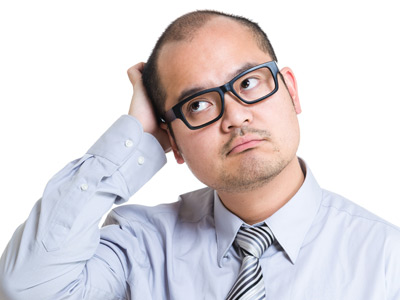 Normally, a person sheds anywhere up to 100 strands of hair per day. Finding hair at the bottom of the shower or tangled in a brush is a common occurrence. Unfortunately for some, however, hair follicles can become damaged, stressed, or hormonally challenged, rendering them inactive for periods of time. When this occurs, hair ceases its normal growth cycle and existing strands begin to fall out in larger quantities than what is considered average.
Normally, a person sheds anywhere up to 100 strands of hair per day. Finding hair at the bottom of the shower or tangled in a brush is a common occurrence. Unfortunately for some, however, hair follicles can become damaged, stressed, or hormonally challenged, rendering them inactive for periods of time. When this occurs, hair ceases its normal growth cycle and existing strands begin to fall out in larger quantities than what is considered average.
Male pattern baldness, medically referred to as androgenic alopecia, is the most common form of hair loss in men, accounting for 95 percent of men’s hair loss. According to the American Hair Loss Association, 85 percent of men who’ve reached the age of 50 have significantly thinning hair. A quarter of those suffering from male pattern baldness begin to exhibit symptoms before they reach the age of 21. (i)
Women’s hair loss, commonly telogen effluvium, isn’t nearly as consistent. Although many erroneously assume that hair loss is strictly associated with men, 40 percent of hair loss sufferers are actually women. (ii) It’s a silent condition many women avoid talking about or getting help for because women’s hair is a sign of beauty. Compromised attractiveness due to stress, aging, genetics, or hormonal imbalance is considered taboo for women, which is why so many lack the resources to combat this embarrassing condition.
Because hair loss is a noticeable condition, one might wonder: Can my hair loss affect my professional life?
Unfortunately, yes, but maybe not in the way you think it would. While your coworkers and managers are unlikely to judge to you based on your thinning hair, your own inner feelings about your hair loss may surface in the workplace.
Hair Loss, Self Esteem, and Career Development
Negative feelings surrounding hair loss can mostly be attributed to two things: Media and culture. Hair is something both men and women use to make themselves feel more attractive and put together. Hair loss is also seen as a sign of aging or sometimes, bad health. These adverse sentiments regarding balding cause social and psychological effects, including compromised self-image and self esteem.
Depression, anxiety, and low self-esteem can hurt job performance, whether through missed workdays or lack of confidence in ideas and accomplishments. The American Hair Loss Association states, “It is not uncommon for men to change their career paths because of their hair loss.” (i)
According to a random sampling amongst European men ages 18 to 45, 70 percent of men believe hair is an important feature of one’s image, and 62 percent agreed that hair loss has the potential to negatively impact self-esteem. (iii)
Regaining Confidence at Work with Hair Restoration
While less than 10 percent of men in the European study were actively pursuing hair loss treatment, 59 percent of those undergoing treatment who reported success said they experienced improvements of self-esteem and personal attractiveness. (iii)
If you feel that your hair loss is negatively affecting your personal and professional life, it’s time to act now. The expert surgeons at the Hair Transplant Institute of Miami provide advanced hair restoration techniques to help you regain your motivation and drive at work by giving you the confidence you need to succeed. We also offer low-level laser therapy caps to be used in conjunction with hair restoration surgery, or on their own.
Call our Institute toll-free at (877) 443-9070 and make an appointment today.
Sources
(i) http://www.americanhairloss.org/men_hair_loss/introduction.asp
(ii) http://www.americanhairloss.org/women_hair_loss/introduction.asp
(iii) The psychosocial impact of hair loss among men: a multinational European study. Mariola Alfonso, Hertha Richter-Appelt, Antonella Tosti, Miguel Sanchez Viera, Marcos García Curr Med Res Opin. 2005 November; 21(11): 1829–1836. doi: 10.1185/030079905X61820

